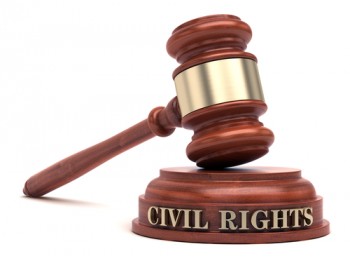Fight over right of women to enter strip club turns into battle over local anti-bias protections

Image from Shutterstock.com.
Two women who sued after they were barred from a strip club have sparked a court battle over the viability of local human rights ordinances in the state of Florida.
The women, Anita Yanes and Brittney Smith, say they were told that they couldn’t enter the Rachel’s strip club in Orlando in February 2018 unless they were accompanied by a man, report the South Florida Sun Sentinel, the Orlando Sentinel and the Washington Post.
The friends made plans for a girl’s night out at the adult establishment near the Orlando International Airport that describes itself as a “World Class Gentlemen’s Club & Steakhouse,” according to the Washington Post.
A manager reportedly said the rule discouraged prostitution, helped keep club visitors’ focus on the strippers, and avoided situations in which women would come in looking for their husbands and “cause drama.”
The women sued in April 2018 under a human rights ordinance in Orange County, Florida, which bars discrimination on several grounds, including gender and sexual orientation.
Judge Keith Carsten of Orange County concluded last May that Florida’s Civil Rights Act of 1992 preempted the local ordinance and dismissed the suit. The state law does not cover discrimination based on sexual orientation.
At least a dozen Florida cities and counties are filing amicus briefs in the appeal that support local anti-discrimination laws. Equality Florida, an advocacy group for civil rights and protections for LGBTQ residents in Florida, is also backing the women.
Matthew Dietz, an attorney for the nonprofit Disability Independence Group in Miami, is representing the women. He argues that state and federal anti-discrimination laws create minimum protections, and local jurisdictions can provide additional protection.
The Rachel’s strip club in Orlando is represented by lawyer Steven Mason.
“My thought, my opinion, is that the left-leaning cities and counties in our state are opposed to the legislation promulgated by the Republican-dominated Florida legislature; thus, they are attempting to gut state law,” Mason told the Orlando Sentinel in an email. “Yes, this case is of crucial constitutional importance, and I understand why certain cities and counties across the state are in a panic that their anti-discrimination codes may be invalidated.”
“I hope that they are; they are unconstitutional.”



